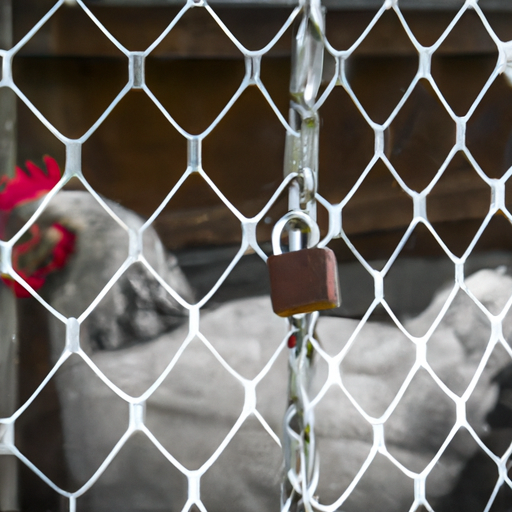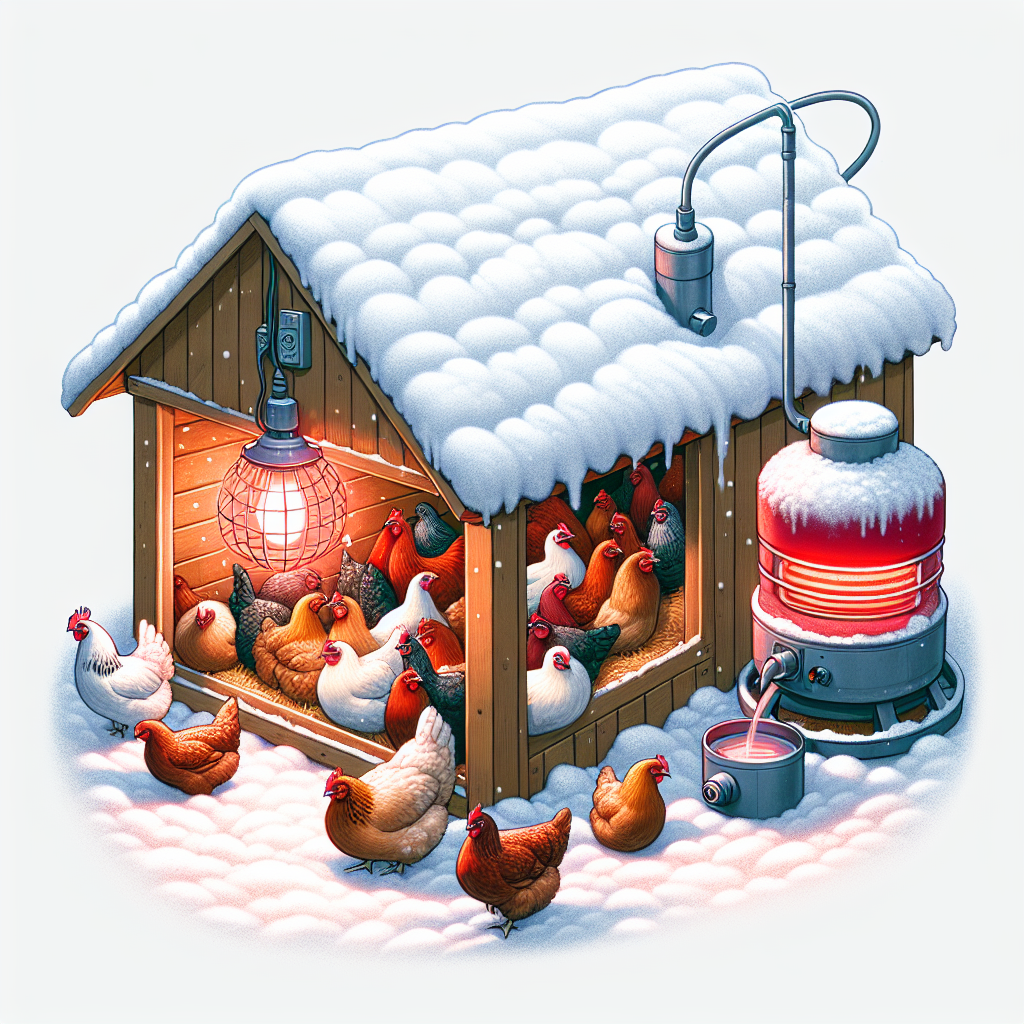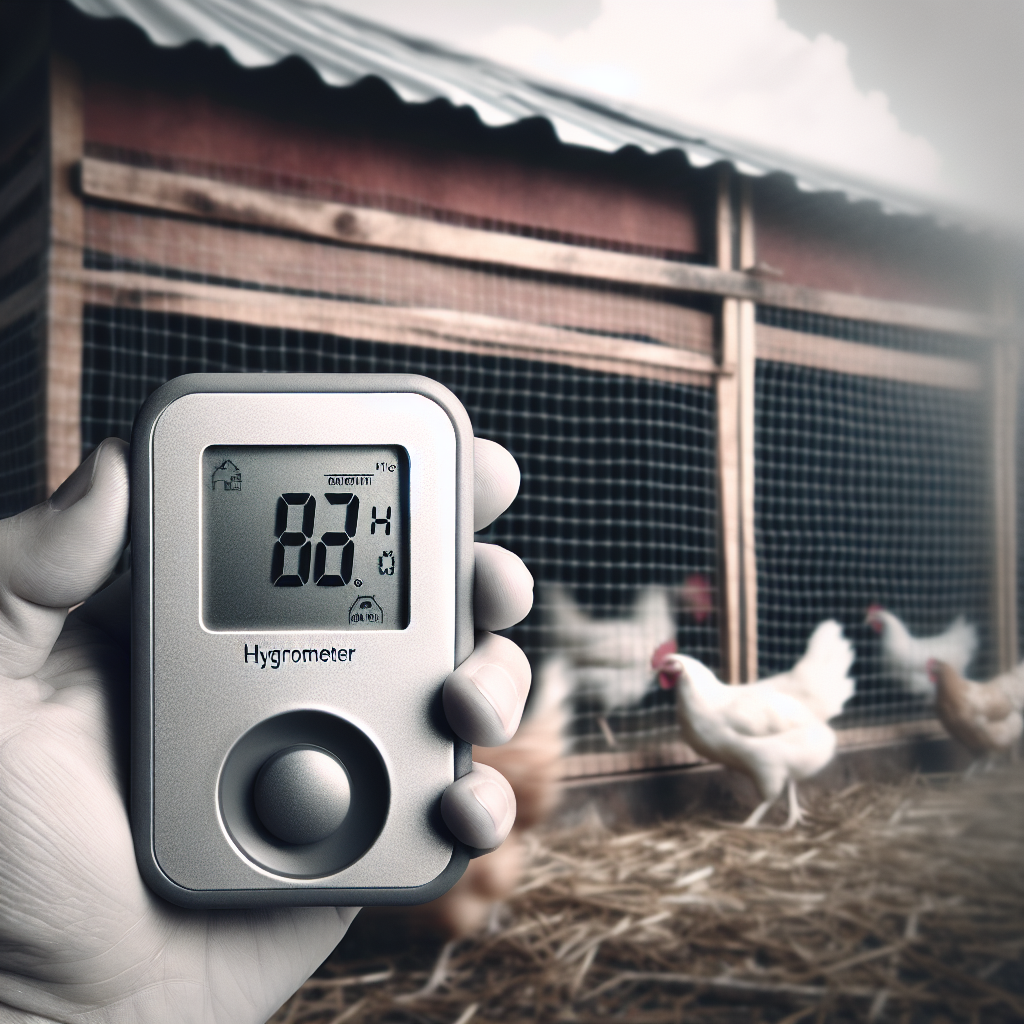Winter can be a challenging time for chicken owners, as the cold weather brings out potential predators looking for an easy meal. From cunning foxes to bold raccoons, these winter predators can wreak havoc on your flock. But fear not, there are effective measures you can take to keep your chickens safe and sound during the colder months. In this article, we will explore a range of practical tips and strategies to help you protect your feathered friends from potential winter predators. So, grab a cup of hot cocoa and read on to discover how you can ensure the safety and well-being of your precious chickens throughout the season.
Choosing a Secure Coop
When it comes to keeping your chickens safe from predators, the first step is to ensure that you have a sturdy and predator-proof coop. A well-built coop will not only protect your chickens from potential threats, but it will also provide them with a safe and comfortable environment to thrive in. Make sure that the coop is made from durable materials and that it has a solid construction. Check for any weak spots or gaps where predators might be able to enter, and reinforce those areas as necessary. Remember, a strong coop is the foundation for keeping your chickens safe.
Place the coop in a well-lit area
Predators are less likely to venture near your coop if it is situated in a well-lit area. By ensuring that the coop is adequately illuminated, you can minimize the risk of nocturnal predators sneaking up on your chickens. Consider installing motion-activated lights around the perimeter of the coop. These lights will turn on when they detect movement, alerting you to any potential threats and potentially scaring off predators. Additionally, having a well-lit area around the coop provides increased visibility, allowing you to keep a watchful eye on your chickens and spot any potential danger.
Install a sturdy lock on the coop door
The coop door is the main entry point for predators, so it is essential to have a secure lock in place. Invest in a strong lock that cannot be easily tampered with or forced open. You can choose from various types of locks, such as padlocks or combination locks, depending on your preference and the level of security you require. Regularly check the lock to ensure it is functioning properly and replace it if necessary. Remember, a secure coop door is vital for keeping your chickens safe, especially during the night when predators are most active.
Fortifying the Chicken Run
While the coop provides a secure space for your chickens to roost, a chicken run allows them to spend time outdoors while remaining protected. To fortify the chicken run and prevent predators from gaining access, consider using a strong wire mesh. Ensure that the mesh has small enough gaps to prevent predators from squeezing through, but also strong enough to resist any attempts to tear it. Bury the wire mesh at least six inches underground to deter predators from digging under it. This additional layer of protection will help keep your chickens safe while they enjoy the freedom of the outdoors.
Cover the run with a roof or netting
Another important measure to fortify the chicken run is to cover it with a roof or netting. This will provide an added barrier between your chickens and potential aerial predators such as hawks or owls. Choose a sturdy material that can withstand environmental factors and secure it firmly to the chicken run. This will prevent any flying predators from swooping in and snatching your chickens out of the run. Additionally, covering the run will also provide protection from adverse weather conditions, keeping your chickens safe and comfortable.
Optimizing Lighting and Visibility
Proper lighting and visibility play a significant role in deterring predators and keeping your chickens safe. Installing motion-activated lights around the coop area can help scare away nocturnal predators by illuminating them when they approach. The sudden burst of light will startle them and make them think twice before attempting to harm your chickens. Additionally, regularly trim back any vegetation around the coop to enhance visibility. Overgrown foliage can provide cover for predators, making it easier for them to sneak up on your chickens undetected. Lastly, placing reflective objects in the surrounding area can further disorient predators and keep them away from your precious flock.
Implementing Predator Deterrents
In addition to fortifying your coop and chicken run, implementing predator deterrents can provide an added layer of protection for your chickens. One effective method is to use scare tactics such as predator decoys or noise makers. The sight or sound of a predator, even if it’s not real, can be enough to make potential predators think twice before approaching your coop. Consider placing decoys such as fake owls or snakes near the coop to deter predators. Another option is to consider getting a livestock guardian dog. These specially trained dogs can help protect your chickens by keeping predators at bay. Lastly, installing an automatic predator deterrent system, such as motion-activated sprinklers or noise-emitting devices, can startle and scare off potential threats.
Securing Food and Water Sources
In addition to protecting your chickens from predators, it’s equally important to ensure their food and water sources are secure. Store feed and grains in secure containers that are resistant to tampering or gnawing. This helps prevent predators, such as rats or raccoons, from being attracted to your coop in search of an easy meal. Hang feeders and waterers inside the coop rather than placing them outside. This reduces the possibility of predators accessing the food and water sources and minimizes the chances of contaminating them. Remember to bring in any leftover food or water sources at night to avoid attracting unwanted attention from nocturnal predators.
Maintaining a Clean Environment
Maintaining a clean and orderly coop not only promotes the health and well-being of your chickens but also helps deter potential predators. Regularly clean the coop of any spilled food or waste to prevent odors that may attract predators. Remove any leftover food or eggs from the coop daily to minimize the possibility of attracting scavengers. In addition, keep the coop free from clutter or debris that could provide hiding spots for predators. By keeping the coop clean and tidy, you create a less inviting environment for both pests and predators, keeping your chickens safe.
Evaluating the Surrounding Environment
To enhance the security of your chicken coop, it’s essential to evaluate the surrounding environment for potential predator habitats and vulnerabilities. Identify any nearby areas that may provide habitats or food sources for predators, such as wooded areas, overgrown fields, or bodies of water. Take steps to remove or secure these potential hiding places to minimize the risk of predators in close proximity to your coop. Additionally, evaluate the accessibility of the coop from different angles and heights. This will help you identify any potential weak spots or areas that may require additional fortification.
Utilizing Natural Deterrents
Nature offers various solutions when it comes to deterring predators from your chicken coop. Consider planting thorny or prickly bushes around the perimeter of the coop. These thorny barriers can make it difficult for predators to approach or gain access to your chickens. Additionally, incorporate strong-smelling plants, such as lavender or rosemary, around the coop area. Many predators have a keen sense of smell, and certain scents can deter them from approaching. Lastly, harness the power of natural predator-prey relationships. Encouraging natural predators of chicken predators, such as snakes or hawks, can help keep the predator population in check and create a more balanced ecosystem around your coop.
Monitoring and Surveillance
To ensure the ongoing safety of your chickens, it is essential to regularly monitor and surveil the coop and its surrounding area. Install security cameras around the coop area to keep a watchful eye on your flock even when you are not physically present. This will allow you to detect any potential threats and take appropriate action. Consider setting up motion-activated alarms or sensors that can alert you to the presence of predators nearby. Regularly inspect the coop and surrounding area for signs of potential predator activity or vulnerabilities that may need attention. By proactively monitoring and surveilling your coop, you can swiftly respond to any potential threats and keep your chickens safe.
Seeking Advice from Local Experts
When it comes to protecting your chickens from predators, seeking advice from local experts can be invaluable. Consult with local poultry farmers or experts who have experience in safeguarding chicken coops from potential threats. They can provide you with insights, tips, and techniques specific to your locality and the type of predators you may encounter. Additionally, consider joining online forums or groups for chicken enthusiasts. These platforms are a great way to connect with fellow chicken owners and share experiences and advice. Finally, attend workshops or seminars on predator protection that are relevant to your region. These educational opportunities will equip you with valuable knowledge and strategies to ensure the safety and well-being of your flock.
By following these comprehensive guidelines, you can effectively protect your chickens from potential predators year-round. Remember, a secure coop, fortifying the chicken run, optimizing lighting and visibility, implementing predator deterrents, securing food and water sources, maintaining a clean environment, evaluating the surrounding environment, utilizing natural deterrents, monitoring and surveillance, and seeking advice from local experts are all essential steps in safeguarding your beloved feathered friends. With proper precautions in place, you can enjoy the peace of mind that comes with knowing your chickens are safe and secure in their coop.




